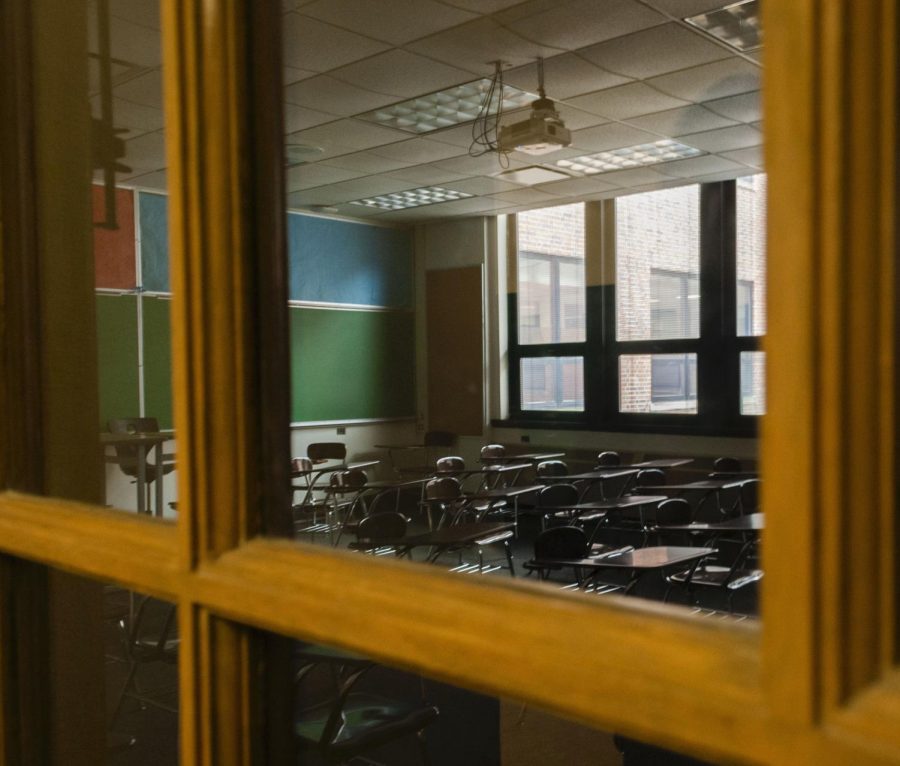How does New Trier handle disciplining hate?
Rather than zero tolerance, NT takes a growth model approach
It’s been three months since administration released the N-word presentation to both students and staff. While the four-day advisory seminar reflected on the N-word’s violent history as well as administrations’ stance against the slur, specific consequences for its use were not discussed.
This absence of a printed disciplinary policy regarding this slur is not unique to the N-word presentation. As of the 2019-2020 version of the Student Guidebook,the only line referencing disciplinary measures for hate speech is under the language section of expectations for student behavior, “Students who fail to exercise care over their choice of language or who degrade the dignity of others through their use of language will be disciplined.”
Assistant Principal Scott Williams explained that the school does not have defined steps in dealing with slur offenders, as administration aims to follow a growth model of discipline when dealing with any kind of student infraction.
“We have a graduated approach to detention. It’s a somewhat flexible approach and punishment really depends on the severity of the offense,” said Williams.
Williams stressed that while administration takes any form of hate speech seriously, the path of discipline is not predetermined for a student who uses the slur until further evaluation by administrators.
“There is not a set consequence. After anincidentlikethishashappened,we look at the totality of what was said or written. Through that investigation, we try and determine what would be an appropriate consequence or follow-up,” stated Williams.
For some students, however, the school’s application of the growth model when disciplining slurs has left them feeling frustrated.
“As a student who identifies as gay, I think that the way the school disciplines any kind of slur is really important,” said Junior Annie Thorton. “I’m aware of a student who said a racial slur and only received one day of in-school detention. I think the punishment for vaping is seven in-school detentions.”
According to Williams, seven- in school detentions is not the disciplinary measure applied to vaping, but Thorton’s statement highlights an important concern shared among some students.
Thorton said she believes consequences for using any kind of slur should be greater than for something like vaping, as you not only affectyourselfbutthecommunityat large with this language.
Senior Raghav Gupta also expressed worries about the subjective nature of the school’s tailor-made discipline process.
“I think there should be more clear-cut consequences for any kind of hate speech. The less subjective the discipline is, the better,” said Gupta.
Williams responded to these student concerns by stating that much of the disciplinary process with students who use used a slur goes unseen by students.
“Although there might be some perception that the consequence in situations like these were not given or not hard enough, I’d like for there to be some trust that there is way more going on besides just that one-time consequence. There’s more work occurring through conversations, resources, and reflection components in this process,” said Williams.
While Williams said he feels traditional consequences like detention are important when dealing with this issue, he would feel uncomfortable having a set of predetermined consequences for an offender without context.
“I think it’s difficult to say if you use this phrase it equals that. With anybody’s use of language that could be hurtful, there is more to the story than just the use of that language,” explainedWilliams.
“We want to consider why this student did that. Was it in response to something that was said to them? Was it just their own viewpoint or opinion, or was it even a reactionary response,” said Williams.
While the consequences may be in dispute by students, both sides agree on one thing, as Raghav Gupta summed it up, “People need to know it’s not okay.”







































